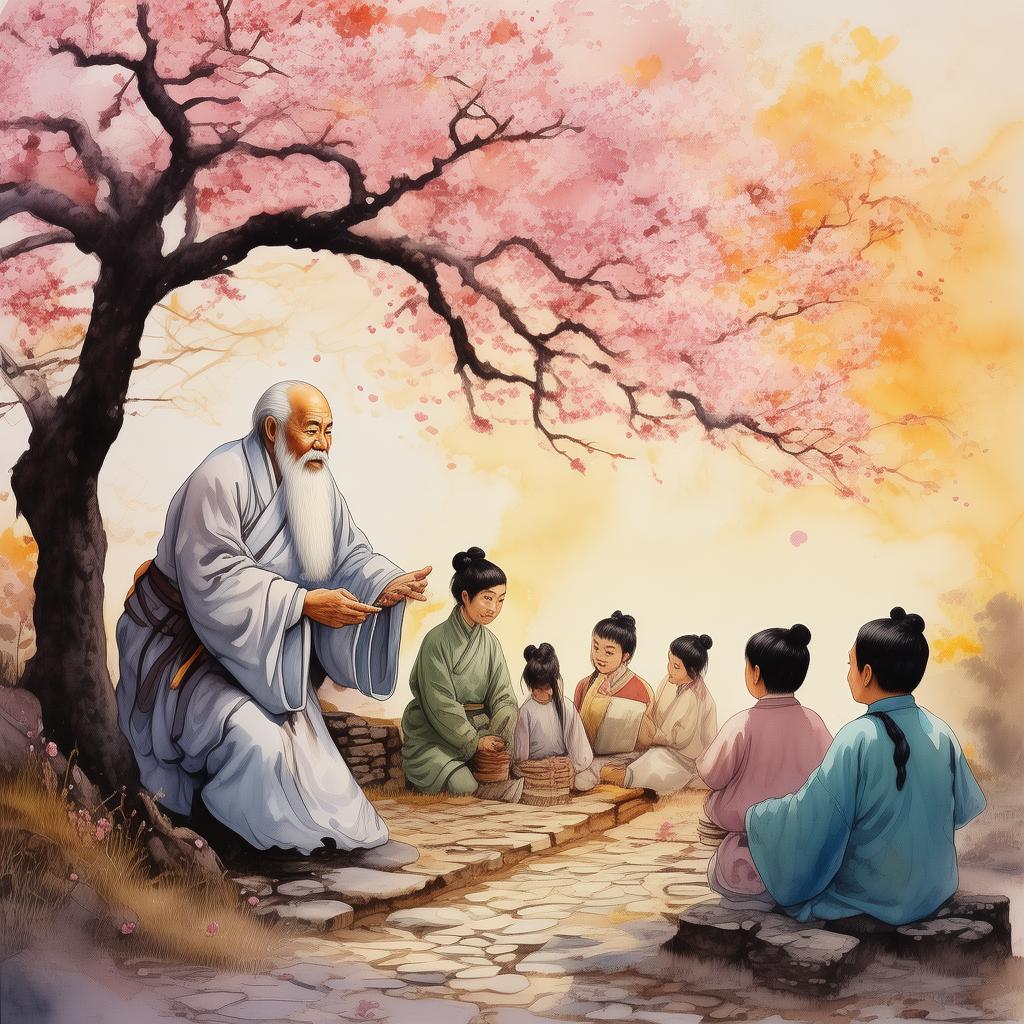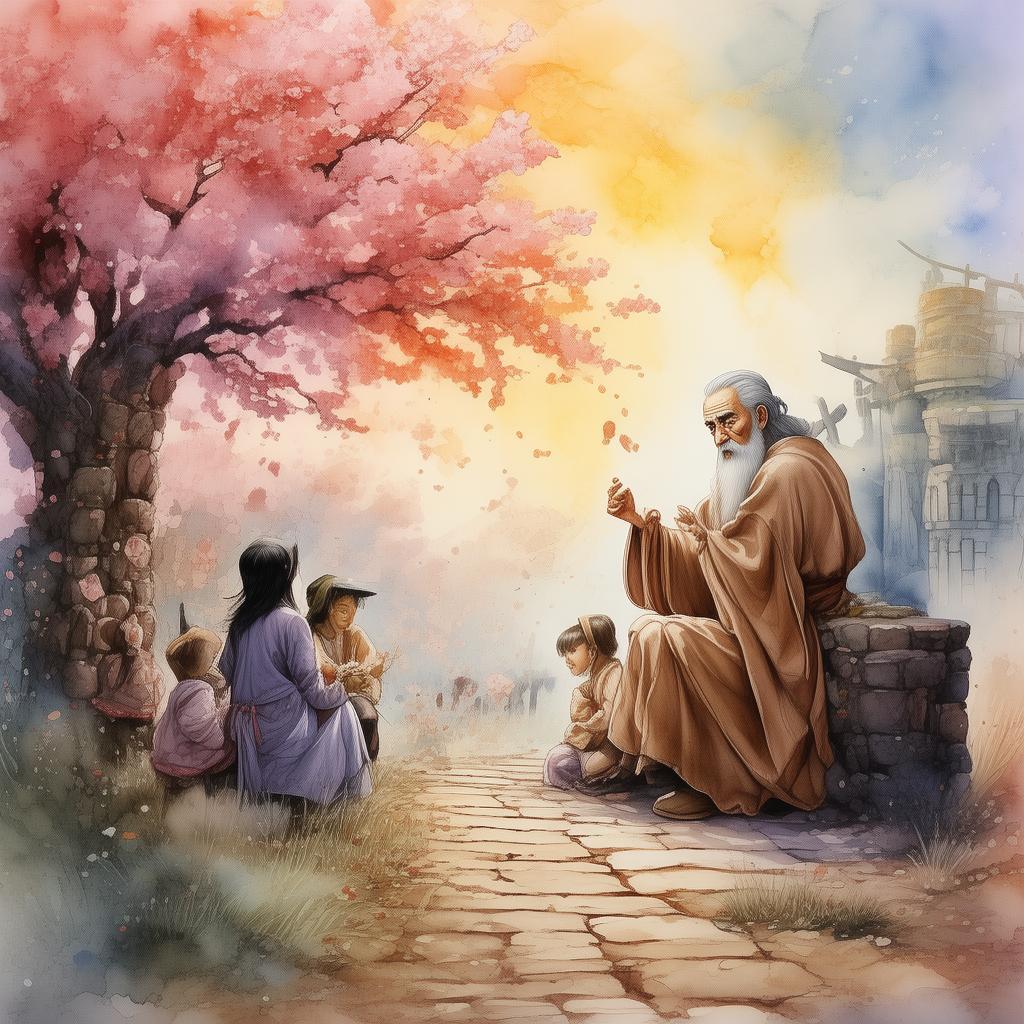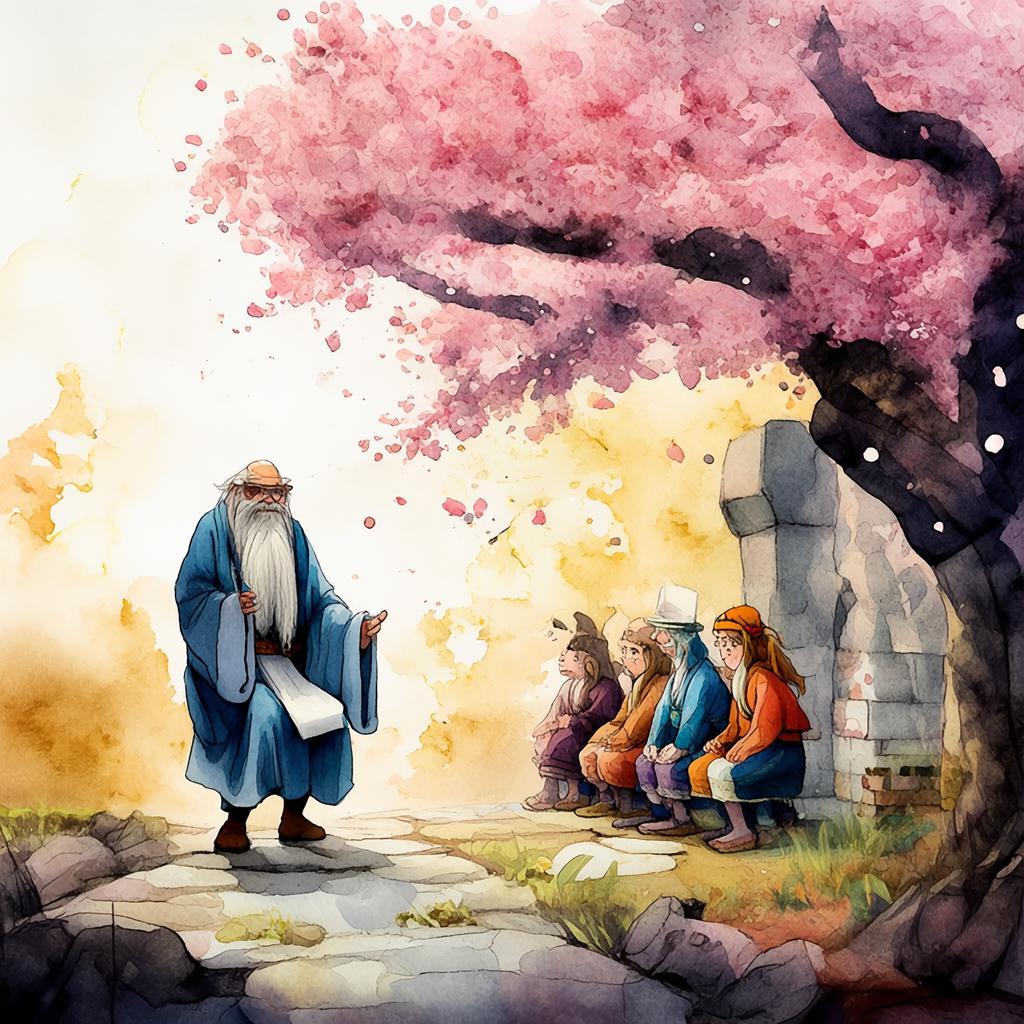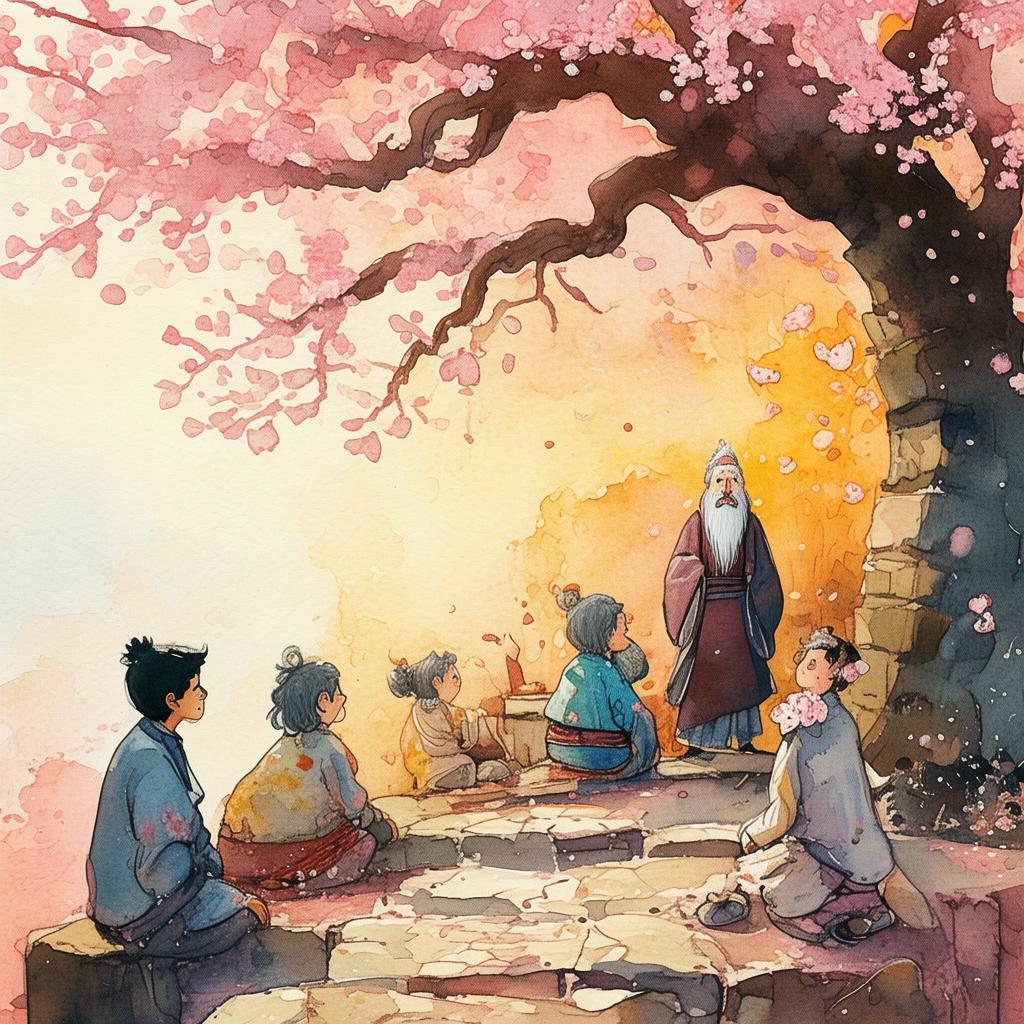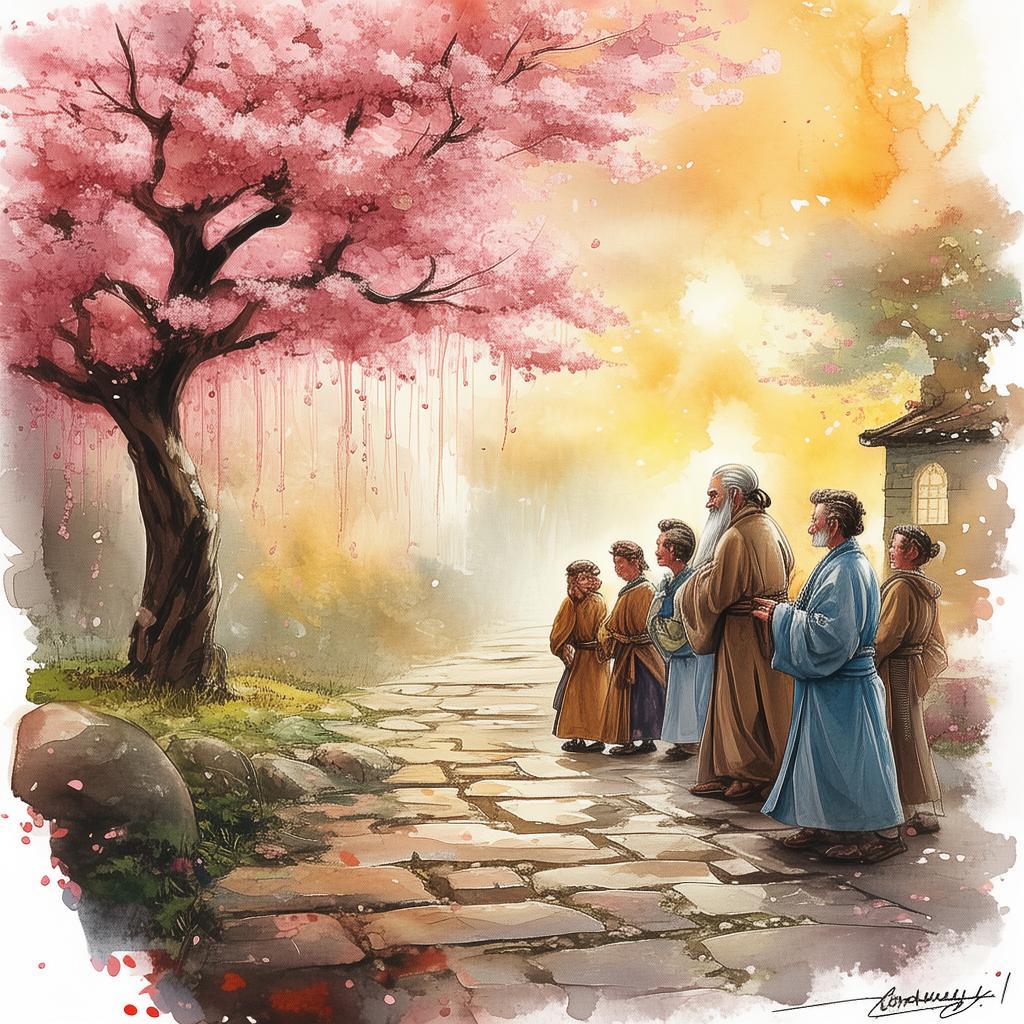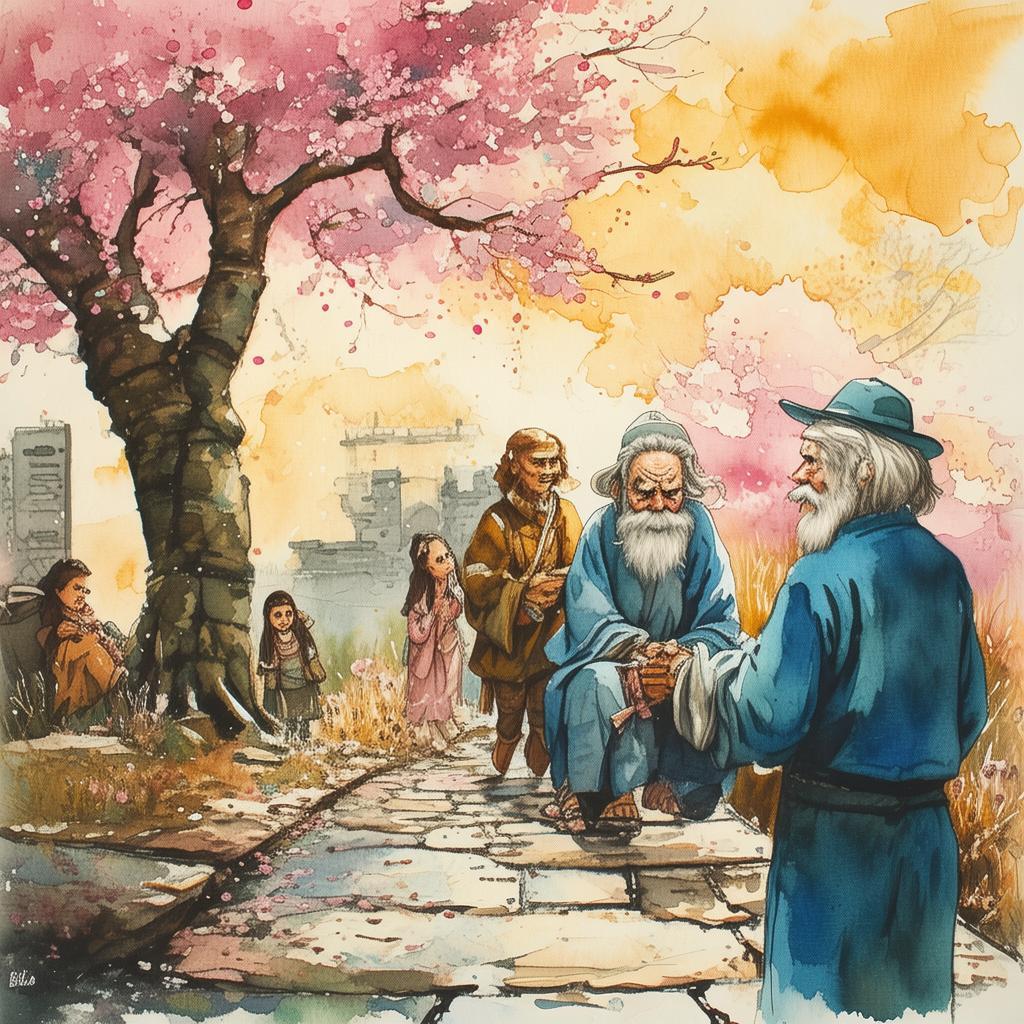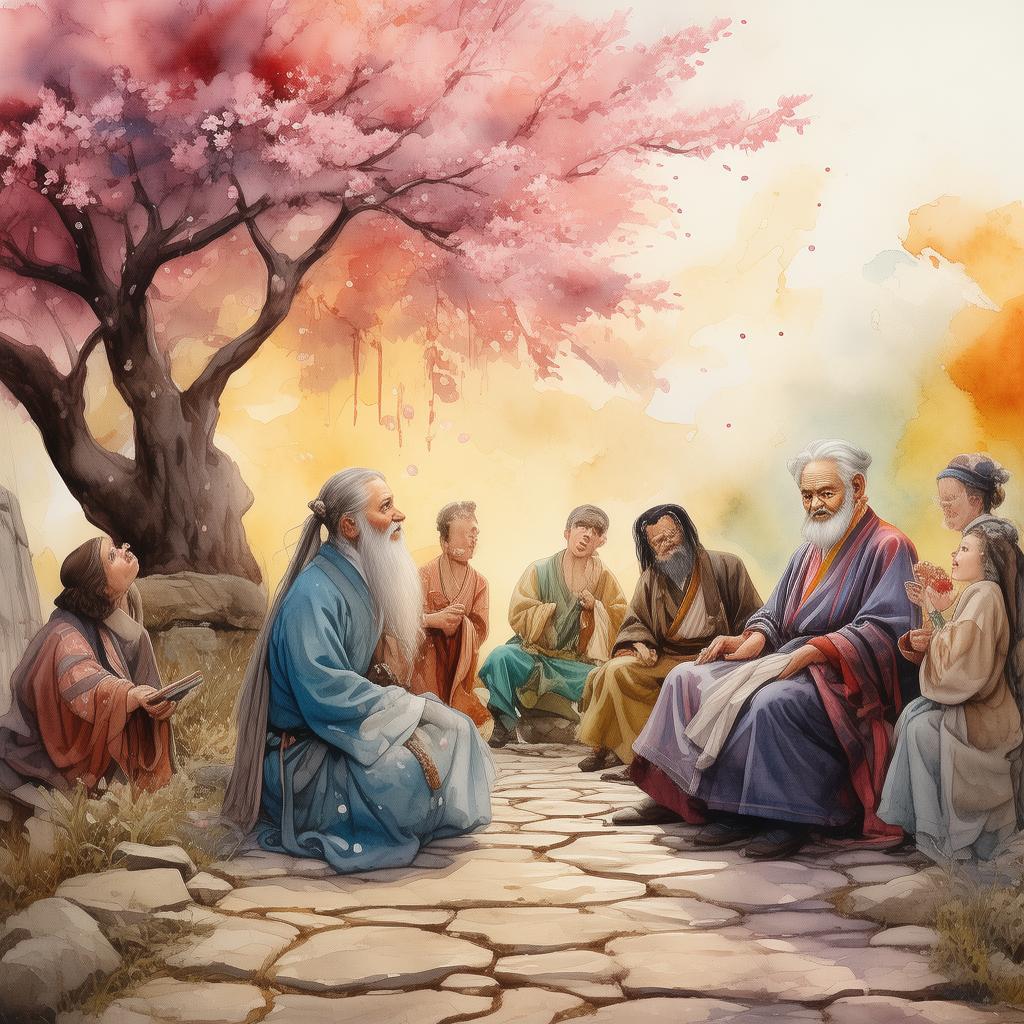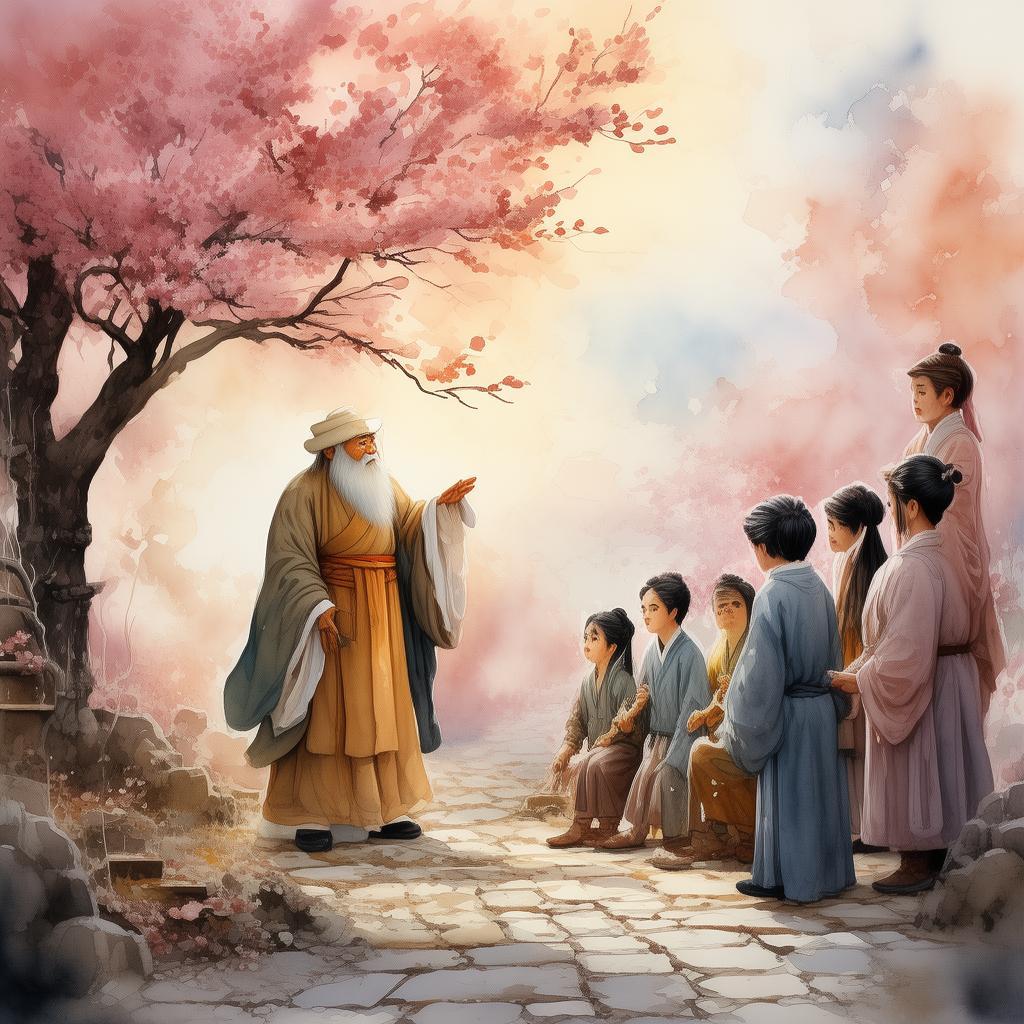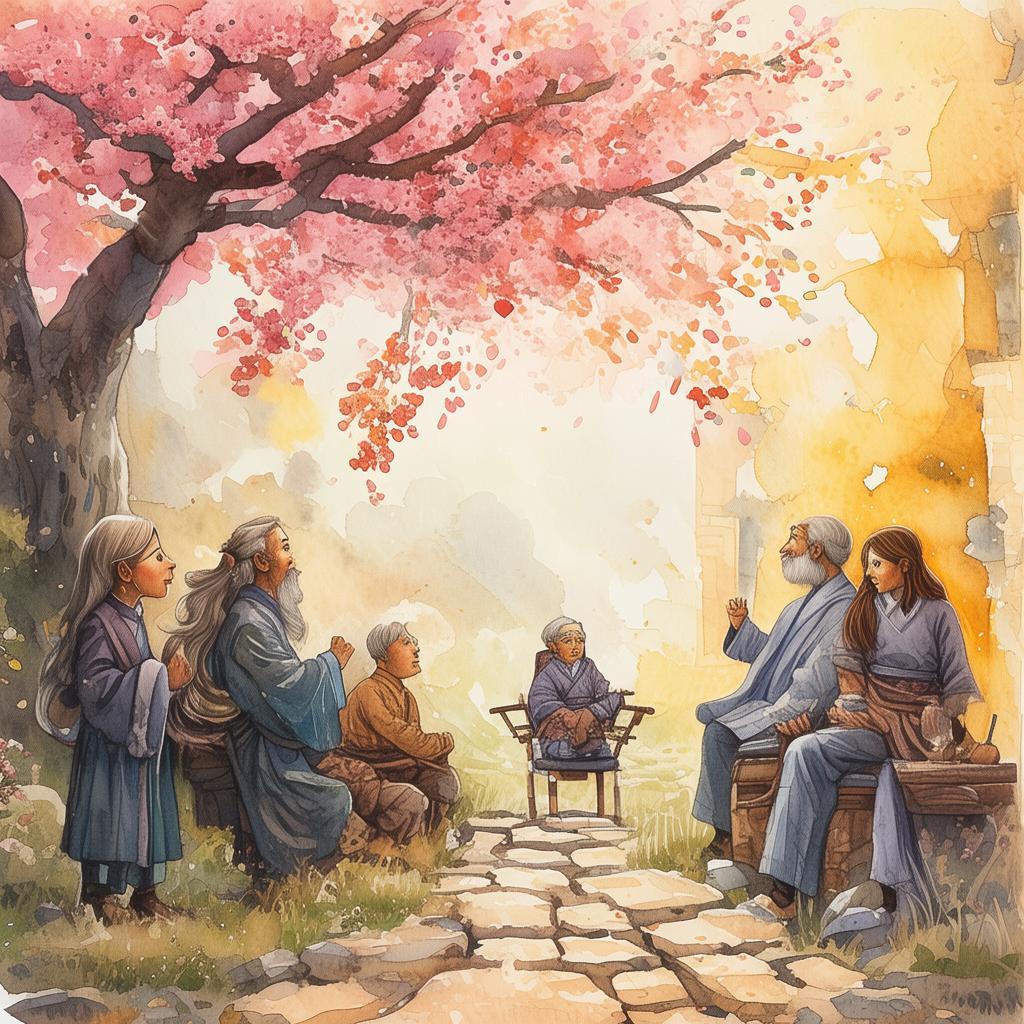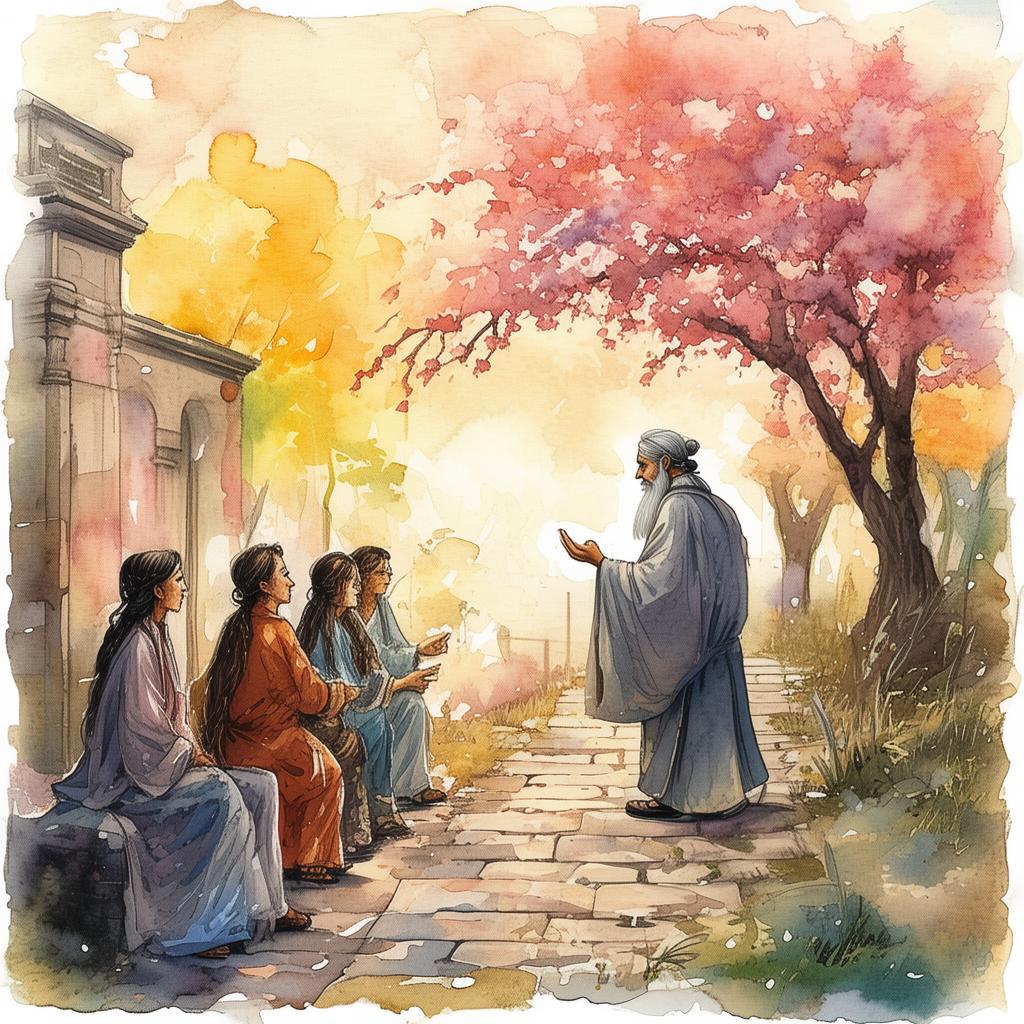The Shadow of the Ancient Emperor
In the heart of the ancient empire, where the sun kissed the walls of the grand palace, there lived an emperor known for his wisdom and benevolence. His name was Ming, and his reign was marked by prosperity and peace. Yet, beneath the surface of his empire, a shadow loomed, a threat that none could foresee.
Ming's closest advisor, the cunning and ambitious Minister Wei, was the architect of the empire's success. Wei's shadow play, a series of puppet shows that mirrored the grandeur and struggles of the empire, was a favorite among the courtiers and citizens alike. But as the years passed, Ming began to suspect that there was more to Wei's shadow play than mere entertainment.
One evening, as the moon cast its silver glow upon the palace grounds, Ming summoned Wei to his private chamber. "Minister Wei," he began, his voice heavy with concern, "I have noticed that your shadow plays have taken on a darker tone. What is it that you are trying to convey?"
Wei bowed deeply, his eyes never leaving Ming's. "Your Majesty, the shadow plays are but a reflection of the empire's destiny. They serve as a warning, a reminder of the perils that lie ahead."
Ming, however, was not convinced. He felt that Wei's shadow plays were more than just a reflection of destiny; they were a subtle manipulation of the court's thoughts and feelings. Determined to uncover the truth, Ming decided to attend one of Wei's shadow plays, hoping to catch the minister in his deceit.
The play that night was a tragic tale of betrayal and revenge. As the final act unfolded, Ming realized that the play was a thinly veiled allegory for his own life. The puppet that represented the emperor was betrayed by his closest advisor, much like Ming felt he was being betrayed by Wei.
In a fit of rage and suspicion, Ming had Wei arrested and thrown into the deepest dungeon of the palace. But as the days turned into weeks, Ming began to regret his actions. He missed the counsel of his trusted advisor and feared that he had made a grave mistake.
One night, as Ming lay in his bed, unable to sleep, he heard a faint whisper. "Your Majesty, you have been betrayed, but not by your advisor. The shadow that looms over your empire comes from within."
Ming, puzzled, rose from his bed and made his way to the dungeon. There, he found Wei, his face pale and eyes hollow. "Minister Wei," Ming said, "I have come to ask for your forgiveness. I realize now that I was wrong to suspect you."
Wei looked up at Ming, his eyes filled with sorrow. "Your Majesty, the shadow that looms over your empire is not a person, but a conspiracy. The empire's greatest enemy lies within its own walls, and it is far more dangerous than any shadow play."
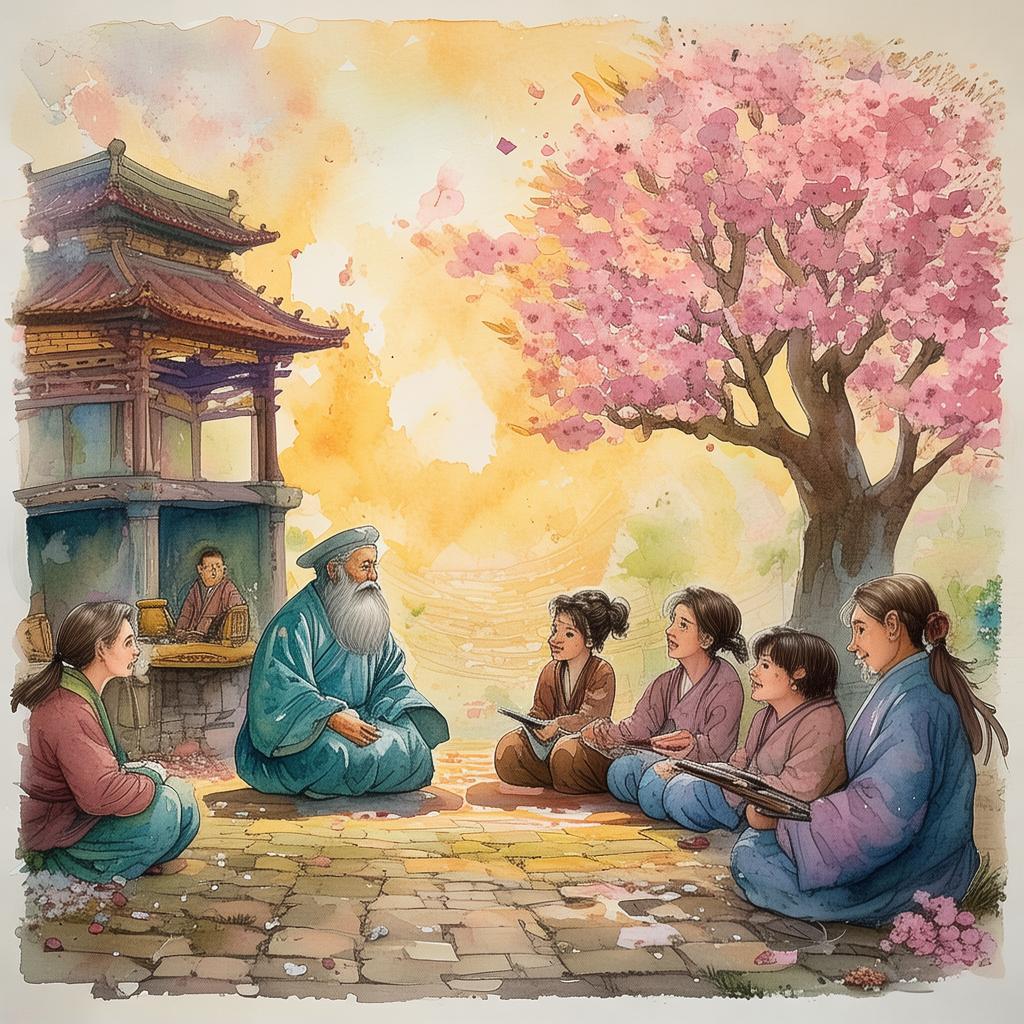
Ming, understanding the gravity of Wei's words, asked him to explain. Wei, with trembling hands, began to recount the tale of a secret society that had infiltrated the highest echelons of the empire. They were plotting to overthrow Ming and take control of the empire for their own gain.
As Ming listened, he realized that the shadow play was not just a reflection of the empire's destiny, but a warning from Wei. The minister had been trying to protect Ming and the empire from this impending disaster.
With renewed determination, Ming and Wei set out to expose the conspiracy and save the empire. They faced numerous challenges, from deciphering cryptic messages to outmaneuvering the cunning members of the secret society.
In the climactic final act, Ming and Wei discovered that the leader of the conspiracy was none other than the grand vizier, who had been manipulating events from the shadows all along. With the help of the empire's loyal subjects, Ming and Wei managed to thwart the vizier's plans and restore order to the empire.
The empire was saved, but at a great cost. Minister Wei, who had been instrumental in bringing the conspiracy to light, was killed in the final confrontation. Ming, heartbroken, mourned the loss of his trusted advisor.
In the aftermath of the crisis, Ming reflected on the events that had transpired. He realized that the true power of the empire lay not in its wealth or might, but in the unity and trust of its people. With this newfound wisdom, Ming set out to rebuild the empire, guided by the lessons he had learned from the shadow play and the sacrifices made by his loyal advisor.
The story of the ancient emperor and the shadow play became a legend, a tale of betrayal, redemption, and the enduring strength of a nation. And so, the empire thrived, forever protected by the lessons of the shadow play and the memory of the brave minister who had given his life for the greater good.
✨ Original Statement ✨
All articles published on this website (including but not limited to text, images, videos, and other content) are original or authorized for reposting and are protected by relevant laws. Without the explicit written permission of this website, no individual or organization may copy, modify, repost, or use the content for commercial purposes.
If you need to quote or cooperate, please contact this site for authorization. We reserve the right to pursue legal responsibility for any unauthorized use.
Hereby declared.
